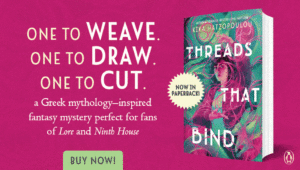Figures from Greek myths want to be remembered forever, cheat death, know the future, or see their (living or dead) loved ones again. These are deeply relatable desires. Fate, irony, arrogance, and courage are universal concepts, and ancient Greek literature explored them in ways that still resonate today.
Immortals who can become mortal and demigods (the children of gods and humans) still inspire today’s immortal fantasy characters. From Percy Jackson and the Olympians on Disney+ to myth-retelling novels for adults, it’s obvious stories from ancient Greek literature influence pop culture today. And re-imaginings make ancient stories more accessible to many readers.
Though ancient Greek epics, poetry, and drama have endured for millennia, of course, they originated from a specific culture. In 2023, for BR, Lyndsie Manusos interviewed several Greek authors on their opinions about Greek myth retellings. They all said diverse retellings are important, which should include renditions by modern Greek authors. Ancient Greek literature and history were central to 18th and 19th-century British and U.S. educations and still get co-opted by white supremacists. A culture is not a vibe or aesthetic.
If you love Greek mythology, these books below have elements that may also appeal to you. They’re not all strict retellings. Some are inspired by ancient Greek myths in subtler ways or use their names, themes, and figures in modern settings.
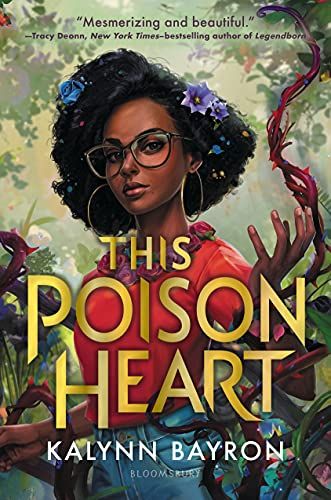
This Poison Heart by Kalynn Bayron
Helping out in her mom’s nursery, Briseis discovers she can make plants bloom. She inherits an estate from her aunt and uncovers even more secrets. The setting is Gothic and modern, but it also incorporates the elixir of immortality and other ideas and figures from Greek mythology. Briseis’ name originates from a prisoner of war in The Iliad. The original Briseis has no agency and is trafficked from one powerful man to another. So, it’s great to find such a powerful character with that name.
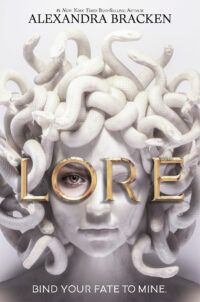
Lore by Alexandra Bracken
If you’ve ever imagined how gods might feel when they become mortal, or vice versa, you might love this book. It has a unique take on the demigods and generational curses of ancient Greek mythology. On a seven-year cycle, nine gods turn mortal, so descendants of human heroes, like Achilles, can hunt them. This is an urban fantasy set in modern NYC with vivid characters. The hunt, the Agon, is named after the main conflict in ancient Greek drama.
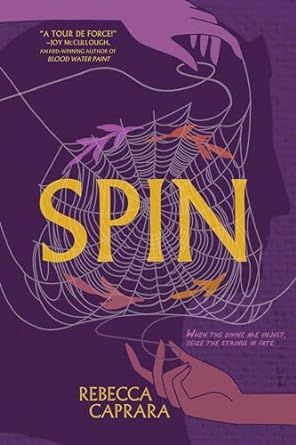
Spin by Rebecca Caprara
This YA fantasy-in-verse has a protagonist who’s often overlooked, even among retellings. Arachne’s mother teaches her to weave and tells her stories of the gods and goddesses. The book also mentions concepts from ancient Greek drama: hubris (arrogance) and hamartia (a character’s tragic flaw). These become relevant to Arachne’s story when she says her tapestries are better than Athena’s. The details are vivid, and the subject and structure of this book are unique. Maybe skip this one if you have a strong phobia of spiders, though!
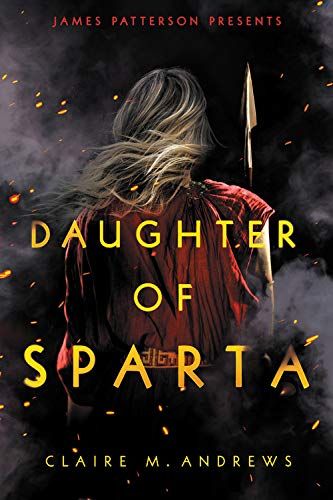
Daughter of Sparta by Claire M. Andrews
Historians think Spartan women had more freedom than women from other ancient Greek city-states and were taught to handle weapons. This allows Daphne to replace her brother in a competition, though she’s still one of the mothakes (outsiders). The goddess Artemis needs Daphne’s help. This novel is partly inspired by the story of Daphne and Apollo. In Roman poet Ovid’s version of the myth, Daphne was turned into a laurel tree to avoid being raped by Apollo. Many ancient myths, like this one, have fascinating potential for YA and feminist retellings.
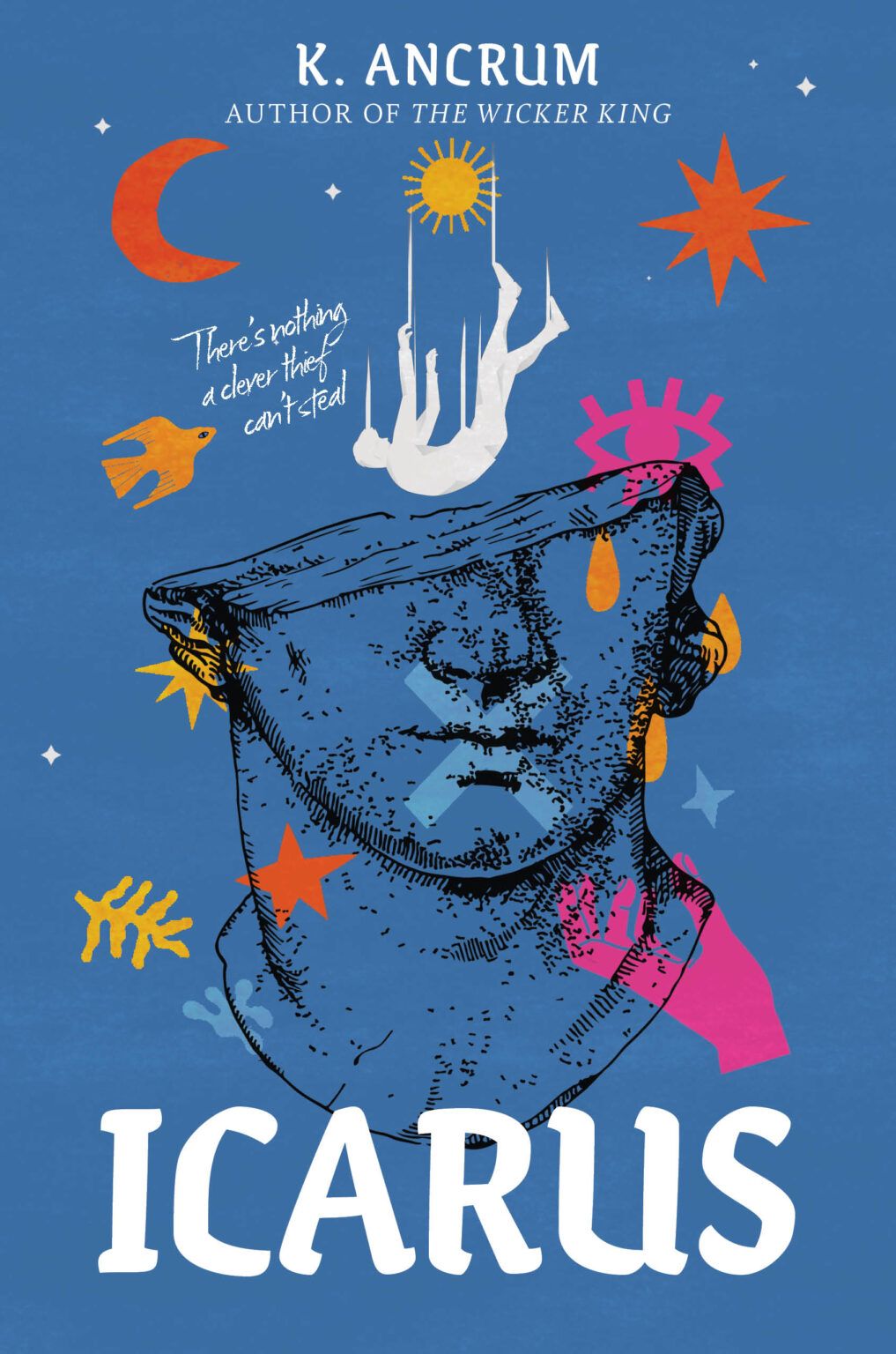
Icarus by K. Ancrum
This is a contemporary thriller inspired by the myth of Icarus and his inventor father, Daedalus. In the myth, Daedalus makes wax wings for Icarus, who flies too close to the sun. In this novel, Icarus’ father, Angus, is an art forger, and Icarus steals originals and replaces them with Angus’ imitations. As metaphors, the danger and arrogance of flying too near the sun fit the art heist premise perfectly. I also recommend Darling, Ancrum’s modern crime thriller that reimagines Peter Pan.
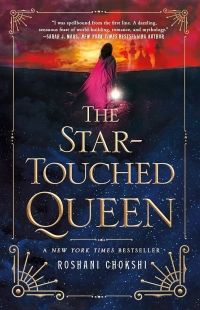
The Star-Touched Queen by Roshani Chokshi
Maya, the raja’s daughter, is cursed, according to astrology. When one of her father’s wives dies, the other wives blame Maya. In this interview, the author explained that her Filipine and Indian heritage, as well as the ancient Greek myth of Hades and Persephone, inspired the book. Maya’s kingdom, Bharata, shares a name with a legendary emperor from Sanskrit texts, and characters can be reincarnated.
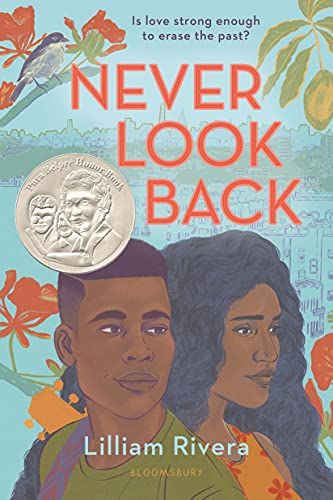
Never Look Back by Lilliam Rivera
This Pura Belpré Honor book is a retelling of the Orpheus and Eurydice myth set in The Bronx in recent times. Eury moved to NYC from Puerto Rico after Hurricane Maria in 2017. The novel has alternating chapters narrated by Pheus and Eury, whose names play on Orpheus and Eurydice. Pheus is a musician (a guitarist and songwriter), like the bard Orpheus with his lyre. Literally and figuratively, never looking back is important to the myth, and it fits the young protagonists’ journeys.
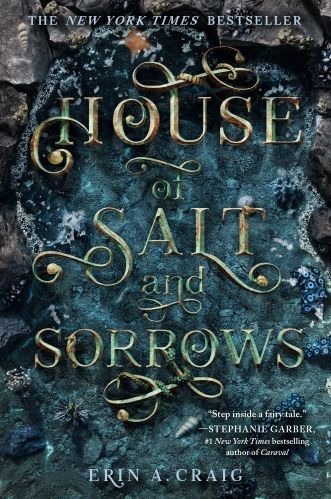
House of Salt and Sorrows by Erin A. Craig
This novel is a retelling of the fairy tale The Twelve Dancing Princesses, which was recorded by the Brothers Grimm. Annaleigh’s sisters are cursed to dance every night past the point of exhaustion. This book blends genres: horror, mystery, portal fantasy, and more. The names and atmosphere draw from Edgar Allan Poe. Although it’s NOT a Greek myth retelling, the gods and world-building are reminiscent of ancient Greek mythology. Annaleigh’s family lives on an island and worships nautical gods. Their main god reminded me of Poseidon. Like the ancient Greek gods, their gods walk among humans, and they are often petty. Some are even half-human demigods.


